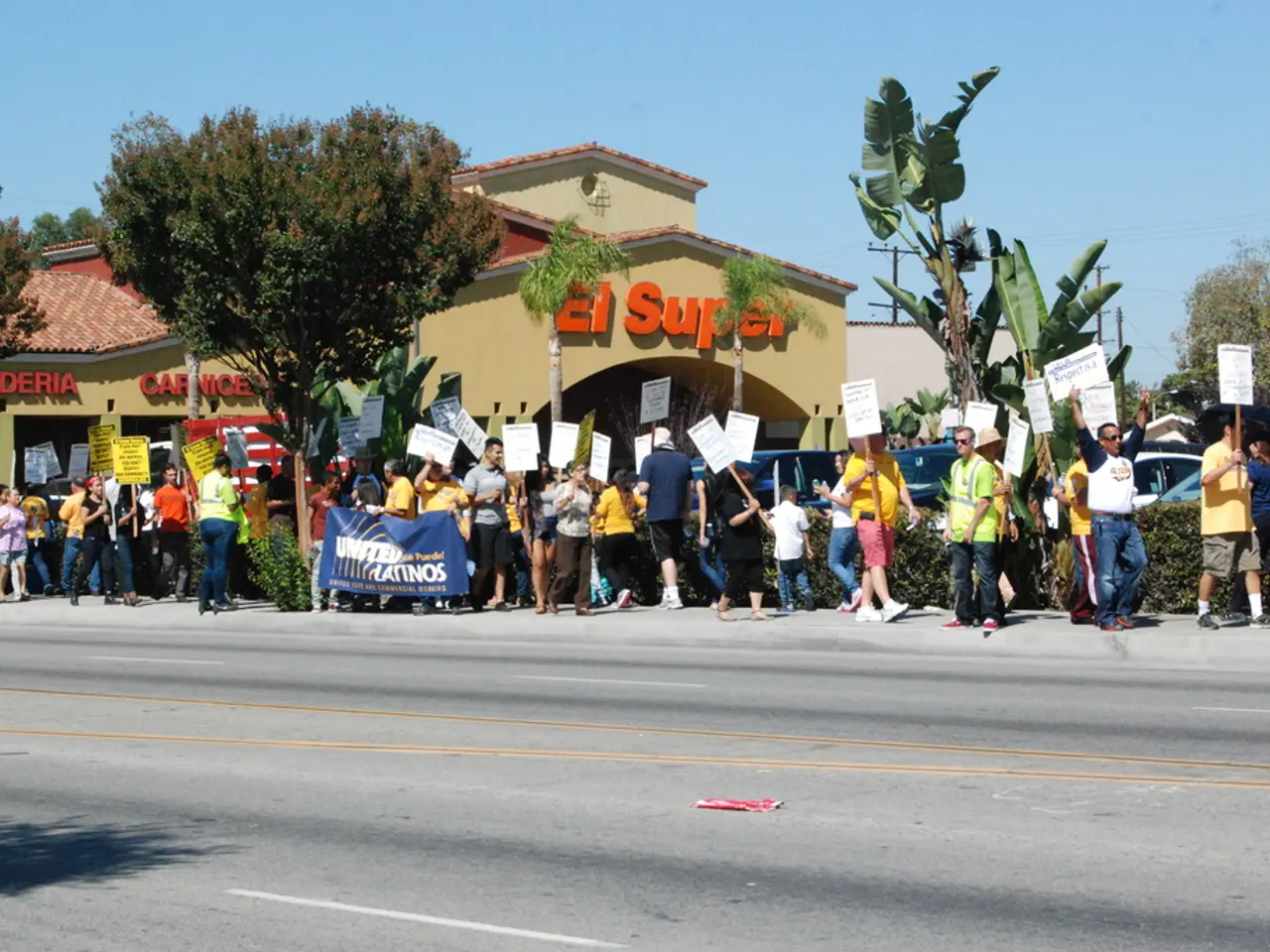Opponents of Radicals vs Advocates of Uprising
The Democratic Socialists of America (DSA) is a diverse organisation, with various factions advocating different strategies and ideologies. These factions shape the power dynamics within the DSA, influencing its policies and actions.
Reformers vs. Revolutionaries
The DSA's factions can be broadly categorised into reformers and revolutionaries. Reformers focus on achieving gradual, incremental changes within the existing political and economic systems, often working with or through existing political parties to advance socialist policies. Revolutionaries, on the other hand, advocate for more radical or revolutionary changes to overthrow or fundamentally transform the existing capitalist system.
Sectarians vs. Realists
Within the DSA, there are also sectarians and realists. Sectarians adopt a more rigid ideological stance, prioritising purity of principle over coalition-building or pragmatic political strategies. Realists, however, are more pragmatic and recognise the importance of building coalitions and working across political lines to achieve tangible gains.
Advocates of Socialist Mass Politics vs. Supporters of an Avant-Garde Workers' Party
Another key division within the DSA is between advocates of socialist mass politics and supporters of an avant-garde workers' party. The former emphasise the importance of building broad, inclusive movements, while the latter view the vanguard party as a key organ for revolutionary change.
Recent Developments and Factions
Recent developments within the DSA highlight the complexity of these power dynamics. For instance, the 2023 DSA National Convention saw an increase in representation from left tendencies, impacting the organisation's leadership dynamics. Caucuses like the Libertarian Socialist Caucus (LSC) appeal to anti-state socialists, creating tension with more pro-electoral factions within the DSA.
Key Caucuses and Their Roles
- Libertarian Socialist Caucus (LSC): This caucus opposes state-centric approaches and serves as a platform for libertarian socialists and anarchists within the DSA.
- Bread and Roses Caucus: This caucus often advocates for more radical or revolutionary policies, contributing to the shift in power dynamics towards more transparency and member involvement.
The final election for the leadership committee of the DSA took place on Sunday afternoon, with over 1200 delegates present. Megan Romer and Ashik Siddique were re-elected as co-chairs of the DSA. Ashik Siddique, co-chair of the DSA, belongs to the "Groundwork" faction that advocates for mass politics.
During the convention, several hours were dedicated to discussing the topic of anti-Zionism, with a resolution passed calling for the exclusion of members who express or engage in "pro-Zionist" activities.
A long-standing DSA member criticised the idealistic consensus that the DSA should be the core of a third party, warning that it could degenerate into a "quagmire of competing sects". The election took place at the Chicago Convention Center, and the momentum and enthusiasm for socialist alliance and mass politics were not reflected in the National Political Committee (NPC).
Ashik Siddique stated that the composition of the new NPC distorts the power dynamics of the entire organisation, as the candidate lineup for the NPC had taken place before Zohran Mamdani's victory in the New York mayoral race. Paul Garver from the international committee noted positively that DSA groups across the country are mobilising for immigrant rights and against ICE.
A majority of DSA delegates rejected a proposal to prioritise discussions on anti-Trump strategies on the first day. Despite the election results, the plenary mainly focused on internal DSA matters instead.
[1] Source [2] Source
Read also:
- Intensified farm machinery emissions posing challenges to China's net-zero targets
- Nuclear plant revitalized: Artificial intelligence-led demand breathes life into the Great Lakes nuclear facility
- Stable U.S. inflation remains at 2.7% in spite of increased tariffs
- Tesla outlines advancements in Semi trucks and plans for Megacharger network at ACT Expo, as captured on video




